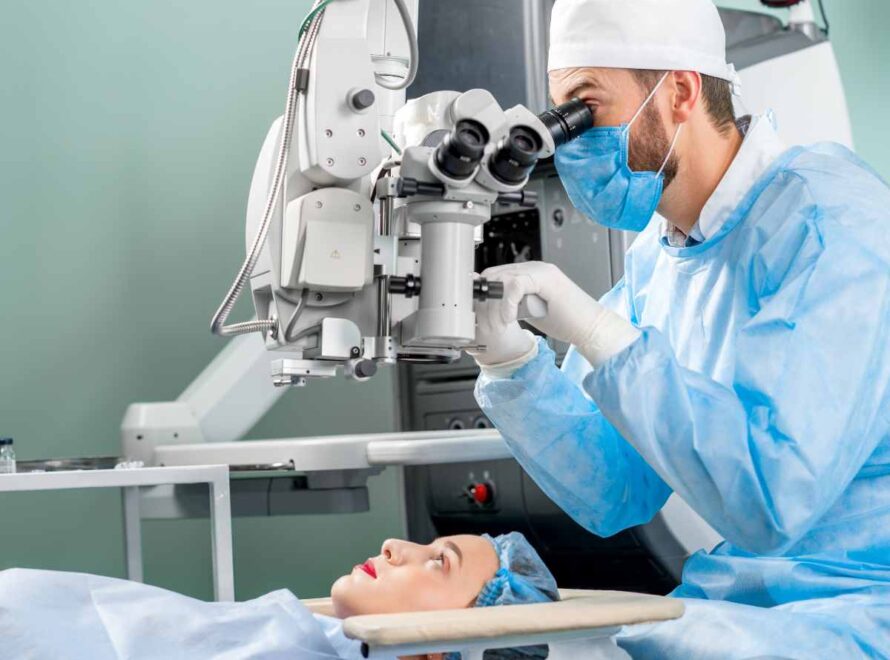Cataract surgery is a common procedure with high success rates, but the recovery process requires careful attention and adherence to specific guidelines to ensure optimal healing and prevent complications. Here, we provide a comprehensive guide on the do’s and don’ts or precautions after cataract surgery to help you achieve the best possible outcomes.
Understanding Cataract Surgery Recovery
Cataract surgery involves removing the cloudy lens from the eye and replacing it with an artificial intraocular lens (IOL). Post-operative care is crucial for the success of the surgery and involves a series of steps and precautions that patients must follow diligently.
Immediate Post-Surgery Care
1. Rest and Relaxation After the surgery, it is essential to rest and avoid strenuous activities. Your body needs time to heal, and resting can prevent unnecessary strain on your eyes.
2. Use Prescribed Eye Drops Your doctor will prescribe antibiotic and anti-inflammatory eye drops to prevent infection and reduce inflammation. Follow the prescribed schedule strictly and ensure you wash your hands before applying the drops.
3. Protect Your Eyes Wearing a protective eye shield or glasses, especially while sleeping, can prevent accidental rubbing or pressure on your eyes. This precaution is vital to avoid potential damage during the initial healing phase.
Activities to Avoid
1. Avoid Strenuous Activities Refrain from heavy lifting, bending over, or engaging in vigorous exercises for at least a few weeks post-surgery. These activities can increase intraocular pressure and interfere with the healing process.
2. Steer Clear of Dusty or Windy Environments Exposure to dust and wind can irritate your eyes and increase the risk of infection. Avoid such environments or wear protective eyewear if exposure is unavoidable.
3. Avoid Swimming Swimming pools, hot tubs, and natural bodies of water pose a risk of infection. Wait for your doctor’s approval before resuming swimming or any water-related activities.
Proper Eye Hygiene
1. Avoid Rubbing Your Eyes Rubbing your eyes can introduce bacteria and cause irritation. If your eyes feel itchy or uncomfortable, use the prescribed eye drops to alleviate the symptoms.
2. Clean Your Eyes Gently If you need to clean your eyes, use a clean, damp cloth and gently wipe around the eye area. Avoid applying pressure directly to the eye.
3. Follow Your Doctor’s Instructions Your surgeon will provide specific post-operative care instructions. Follow these guidelines meticulously to ensure a smooth recovery process.
Diet and Nutrition
1. Stay Hydrated Drinking plenty of water helps maintain overall health and can aid in the healing process. Hydration is particularly important after surgery to support bodily functions and recovery.
2. Eat a Balanced Diet Consuming a diet rich in vitamins and minerals can promote healing. Focus on foods high in antioxidants, such as leafy greens, fruits, and vegetables, to support eye health.
3. Avoid Alcohol and Smoking Alcohol and smoking can hinder the healing process and increase the risk of complications. Avoid these substances to ensure optimal recovery.
Monitoring for Complications
1. Watch for Warning Signs Be vigilant for any signs of complications, such as increased pain, redness, or swelling, and sudden vision changes. If you experience any of these symptoms, contact your doctor immediately.
2. Attend Follow-Up Appointments Regular follow-up appointments with your surgeon are crucial to monitor your progress and address any concerns. Your doctor will assess the healing process and make any necessary adjustments to your care plan.
Long-Term Eye Care
1. Protect Your Eyes from UV Rays Wear sunglasses that block UV rays to protect your eyes from harmful sunlight. This precaution is important to prevent further damage and maintain overall eye health.
2. Maintain Regular Eye Exams Even after full recovery, continue to schedule regular eye exams to monitor your vision and detect any potential issues early.
3. Adhere to Lifestyle Changes Incorporate healthy lifestyle habits, such as a balanced diet, regular exercise, and avoiding smoking, to maintain good eye health and overall well-being.
Psychological and Emotional Support
1. Stay Positive The recovery process can be challenging, but maintaining a positive outlook can significantly impact your healing. Surround yourself with supportive friends and family to stay motivated.
2. Seek Professional Support If you experience anxiety or depression during your recovery, do not hesitate to seek professional help. Mental health is an important aspect of the overall recovery process.
Conclusion
Cataract surgery is a highly effective procedure, but the recovery process requires careful attention to ensure the best possible outcomes. By following these detailed do’s and don’ts or precautions after cataract surgery, you can promote healing, prevent complications, and achieve optimal vision results. Always consult with your surgeon for personalized advice and adhere to their recommendations to ensure a smooth and successful recovery.





